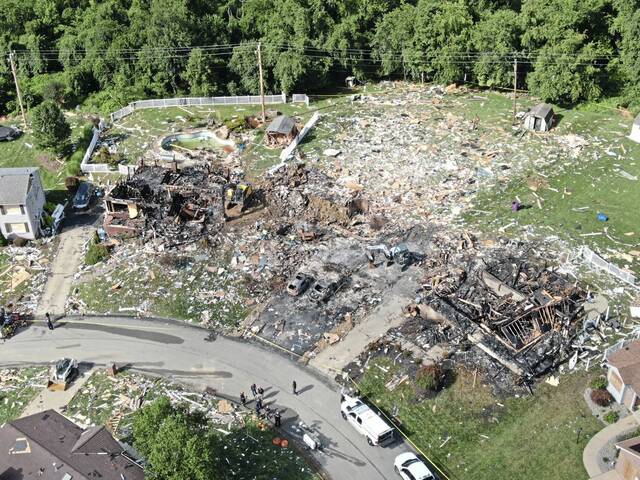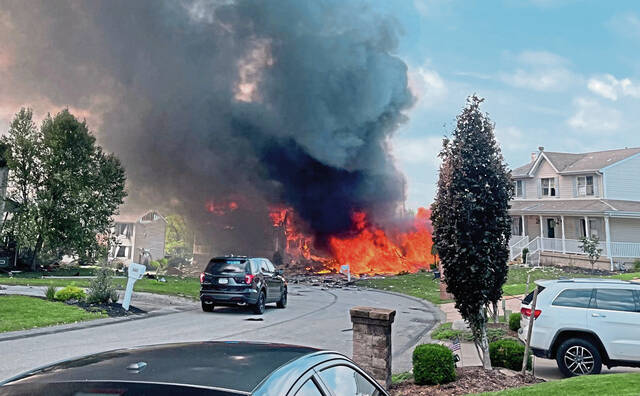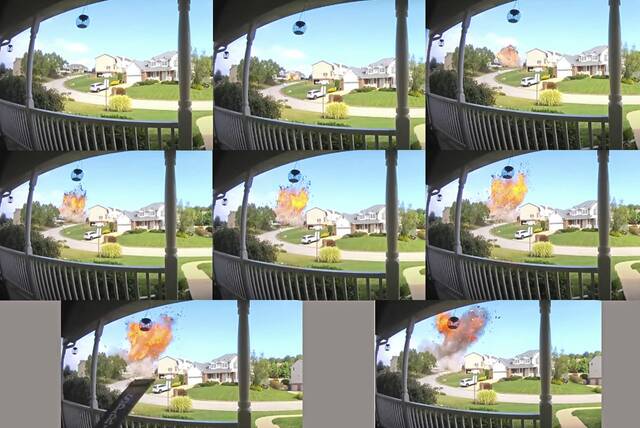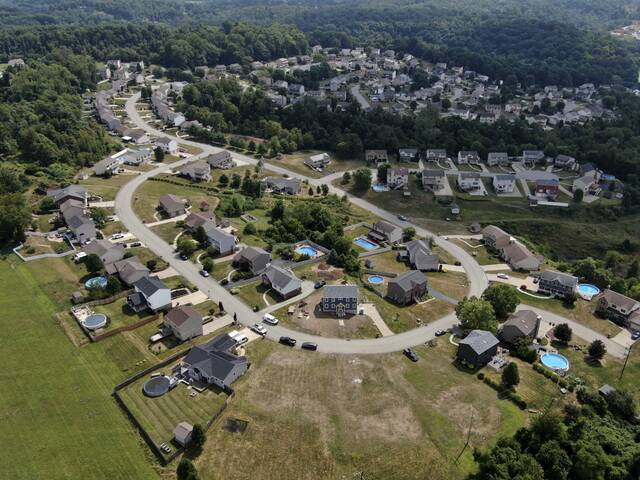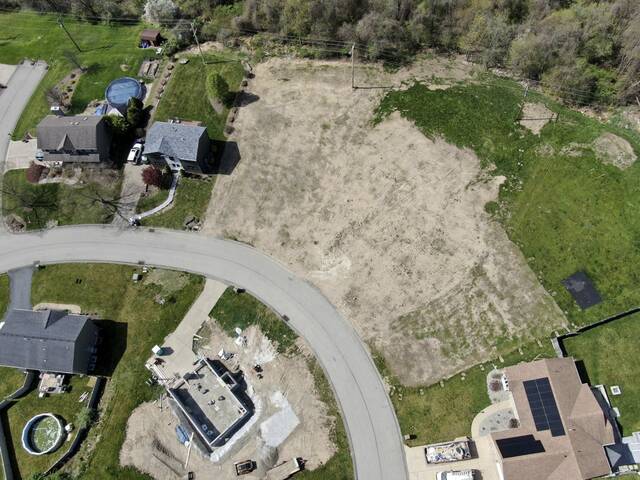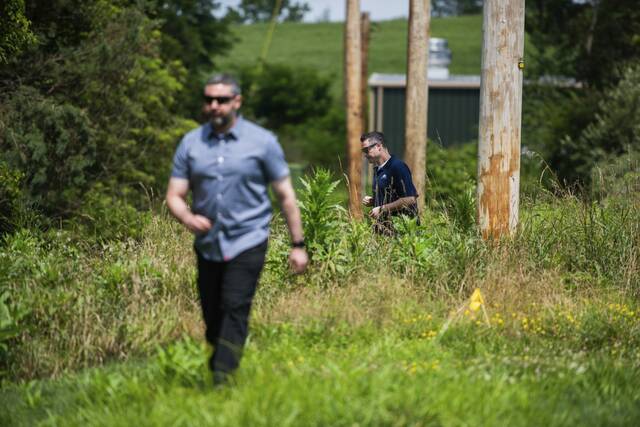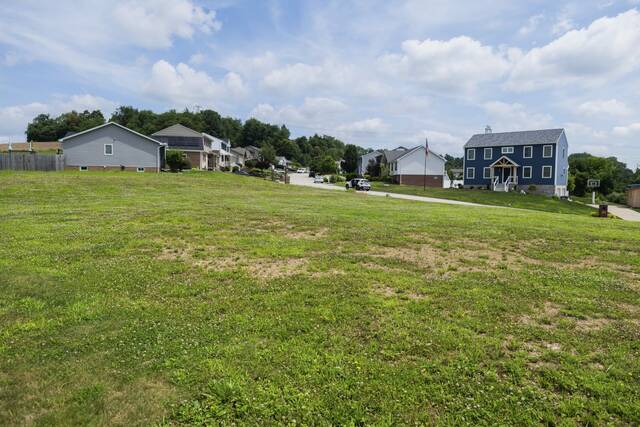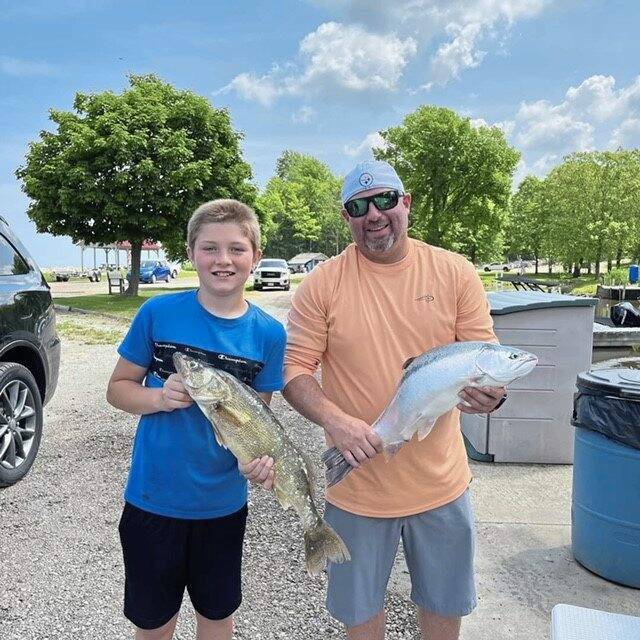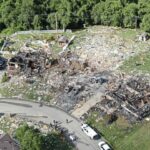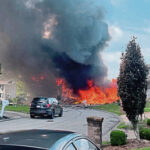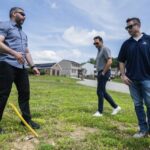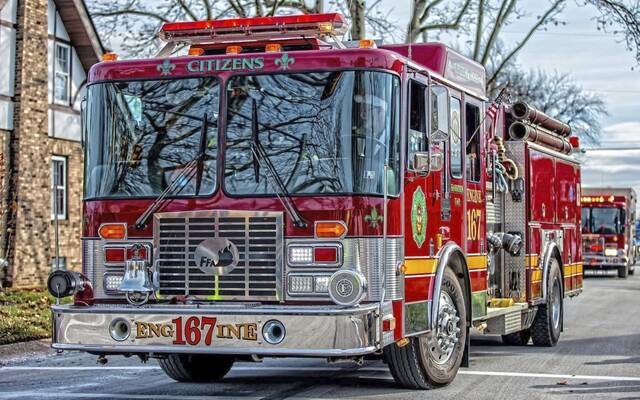EDITOR’S NOTE: This story was originally published on July 23. It’s being reposted on the two-year anniversary of the tragedy in Plum.
Families of the six people killed in a 2023 house explosion in Plum’s Rustic Ridge subdivision have sued multiple companies for negligence and wrongful death, blaming them for the catastrophe and pinpointing the cause as a pipeline leak that filled the basement of Heather and Paul Oravitz’s home with flammable gas that ignited.
Separate lawsuits were filed July 22 in Allegheny County Common Pleas Court on behalf of the Oravitzes’ two adult children, Taylor and Cole, and the family of Kevin Sebunia.
They allege a failure to vent an overpressurized gas line or repair an “unchecked” leak from a 2.5-inch gash in an underground pipe led to the Aug. 12, 2023, disaster, which destroyed three houses and damaged a dozen more.
Heather Oravitz, 51, Plum’s director of community development, died that day. Her husband, Paul, 56, an ultrasound sonographer, died four days later.
Also killed on the same day as the blast were four friends and neighbors who had been in the Oravitz home: Michael Thomas, 57, Plum’s borough manager; Sebunia, 55, a sales consultant; and father and son Casey Clontz, 38, and Keegan Clontz, 12.
Additional lawsuits, all making the same allegations, were filed later in the day July 22 by Thomas’ widow, Jacqueline Thomas, who was injured when the second floor of her house collapsed because of the blast next door; and Jennifer Clontz, Casey’s widow.
Authorities have not reached any official conclusion about the cause of the explosion. But the lawyers theorize odorless natural gas from the leaking pipe migrated underground into the Oravitzes’ basement and continued to power a water heater, even though the appliance’s gas supply had been shut off.
Related article
• 'It's hard not to break': Daughter of Plum house explosion victims continue to grieve without closureThe lawsuits describe a cascade of failures they say resulted in the explosion and “horrific” deaths that could have been averted. Their complaints accuse two energy companies — Delmont-based Penneco Oil Co. and Peoples Gas — of being aware of an overpressurized gas line but not fixing it.
Minutes after the initial lawsuits were filed, a Penneco Oil Co. administrator pushed back on its claims.
“The Allegheny County fire marshal has publicly stated that there is no evidence of anything outside of the foundation of the home that caused the explosion,” Penneco Oil Chief Operating Officer Ben Wallace told TribLive. “The Pennsylvania Utilities Commission, the state Department of Environmental Protection and the Allegheny County fire marshal thoroughly investigated this and gave us absolutely no reason to believe we are in any way involved in the explosion.”
On Sept. 8, 2023, the fire marshal’s office said the point of origin for the explosion was inside the house.
“All potential outside factors like wells, pipelines, ground gas propagation and other utilities were all inspected and tested at several levels by each of the associated agencies and companies,” according to a statement at the time from the fire marshal’s office. “All findings to date confirm that there are no factors external to the home that exploded that led to the explosion.”
The lawsuits also allege A.O. Smith, the Milwaukee company that made the water heater, failed to notify consumers of the “risk of an explosion” when burning an external fuel source. And they found fault with the developer that built the Rustic Ridge subdivision for establishing it near three Penneco natural gas wells.
“A.O. Smith knew or should have known of the dangerous condition of the subject water heater, including that the subject water heater could operate by igniting and burning external flammable vapors in the room,” the lawsuits said.
The company said it does not comment on pending litigation.
Attorney Ben Baer, who represents the Oravitz family, said the gas line leak is part of “a story that needs to be told.”
“This is a big leak — this is not just a little pinhole leak that’s inconsequential,” Baer told TribLive, calling it a “massive leak that was gushing out unodorized gas.”
“We believe that there was a series of failures that led to this tragedy,” Baer added, “including overpressurized pipes, including a leak in a pipe and allowing a home to fill with unodorized gas … all of which led to the preventable deaths of these individuals.”
Attorneys for the families say there’s no indication the Oravitz family — or any of the victims — was aware of the leak.
“(The gas) was not odorized — and the people inside that home did not report smelling anything,” attorney Dominic Guerrini, who represents the Sebunia estate, told TribLive.
“That’s really the problem here: People weren’t told these lines existed,” Guerrini added. “Before you put a housing development in such proximity to lines like that, and wells like that, or future wells like that, you need to let people know.”
The lawsuits list as defendants:
• Penneco Oil Co. Inc. and 17 businesses linked to it, whose gas-line infrastructure, Baer told TribLive, was established in the mid-1990s, a decade before contractors built the roughly 200-home development;
• A.O. Smith Corp., the water heater manufacturer;
• Peoples Gas, the utility that provided natural gas to the Oravitz home at 141 Rustic Ridge Drive;
• Grasinger Homes Inc., the Plum developer that sold and built homes in the Rustic Ridge residential development;
• Eight John Does, unknown individuals associated with the energy company or developer.
The lawsuits seek more than $50,000 for each of the individual suits’ counts, alleging negligence, wrongful death, strict liability and survival action.
The families’ attorneys are demanding a jury trial.
A spokesman for Peoples Gas told TribLive that an hour after the initial suits were filed, that investigators “found no evidence” linking the utility company’s infrastructure to the explosion.
“When this event occurred, Peoples immediately worked with the authorities to assist in the investigation to determine what happened,” spokesman Nick Paradise said in a prepared statement. “The Pennsylvania Public Utility Commission conducted an extensive investigation and, at the conclusion of the investigation, found no evidence linking Peoples’ public utility infrastructure to the cause of the incident.”
An employee at Grasinger Homes Inc., and Michelle Grasinger, a Realtor listed on the developer’s website as a company contact, declined to comment.
‘Complete devastation’
Penneco Oil Co., whose offices are 17 miles from Rustic Ridge, transports natural gas throughout Southwestern Pennsylvania. In 2023, it maintained three natural gas wells within a 2,500-foot radius of the Oravitz home.
Natural gas traveled between two of those wells through a system of underground pipes; compressor stations then pressurized and forced gas through those underground lines, including a 4-inch plastic suction gas line near the Oravitz home, according to the lawsuits.
The lawsuits allege Penneco “failed to maintain appropriate pressure” on the 4-inch line between Jan. 1, 2023, and Aug. 12, 2023, the day of the explosion, and allowed it to increase steadily — with readings spiking more than 150% — over that period.
A regulator controls the pressure in the line, the lawyers said. An agreement between Penneco and Peoples Gas set the maximum pressure permitted, according to the lawsuits.
Peoples Gas discovered four days before the explosion that the line was overpressurized, attorneys told TribLive. The utility barred Penneco from distributing natural gas on the line for one week, according to the lawsuits.
Neither Penneco nor Peoples Gas, however, replaced or repaired the failing regulator, the lawsuits allege. They also did not vent the line to decrease its pressure levels, attorneys said.
The pressure continued to rise.
Attorneys said they later found “multiple leaks” in the line where the gas escaped, including a 2.5-inch hole where gas spewed “unchecked.” It was behind the Oravitz home.
The families’ attorneys claim leaking gas migrated underground and filled the Oravitz basement, possibly entering the home through its foundation.
Wallace, the Penneco Oil executive, told TribLive that is not accurate.
“We have not seen any evidence of gas migration whatsoever,” he said. “And the lawsuit mischaracterizes the nature of our facilities in the area.”
On the afternoon of July 21, Baer joined other attorneys on the case as they paced the empty lot where the Oravitz home once stood. Uprooted trees and a small pile of debris littered the property line.
A tiny yellow flag, marking a gas line nearby, waved above a lawn blemished by patches of crabgrass.
“You have the two homes — here and here — that also came down, that caught fire and burnt down,” Baer said, gesturing across the flat, empty lots. “So you had three homes, big families, just complete devastation throughout this whole area.”
Baer took in the scene, remarking about how close the Oravitz family lived to the site of the leak.
“As I stand here and look at the lots, the proximity of the compressor station or how close this infrastructure is,” Baer said, “it impresses upon me how close the home was to the gas that filled the home before it exploded.”
Parting words
The Oravitzes’ water heater started making noises at 8:29 a.m. that morning, according to the lawsuit.
The racket drew people to the home, including Casey Clontz, a father of two and dedicated Pittsburgh Steelers fan who worked for Peoples. His son Keegan, known as his father’s shadow because of how inseparable they were, tagged along.
An hour-and-a-half later, around 10:08 a.m., someone in the home disconnected the line that fed gas to the water heater, the lawsuits said.
Even after gas was cut to the heater, attorneys said, “a very loud, clanging, banging noise” continued. Flammable vapors then began fueling the home’s water heater from outside of the tank, the lawsuits said.
A.O. Smith, the manufacturer, tells customers some sounds indicate “proper functioning,” the lawsuits said. But, the lawyers claim, they actually meant danger.
Around 10:22 a.m., the gas ignited, and the house exploded, pulverizing the Oravitz home.
Jennifer Clontz felt the blast from her house and witnessed the explosion, according to her lawsuit. She called emergency services and readied her daughter to evacuate their home.
At 10:31 a.m., Casey and Keegan Clontz, both still alive, lay trapped amid burning debris in the collapsed basement under what was left of the Oravitz home.
Clontz called his wife and spoke to her for the last time. The phone call lasted six minutes.
“Casey told his wife that he and their son Keegan were not going to be able to escape, they were going to die, and he loved her,” Jennifer Clontz’s lawsuit said.
She could hear Keegan crying and screaming.
“Jennifer pleaded with Casey to find a way out, told him to try to control his breathing, and that she loved him.”
The explosion’s trigger remains unclear.
“Something had to have created a spark,” Baer told TribLive. “It could’ve been a light switch. It could’ve been the static from someone moving across the carpet. … The real story is that the gas had filled the home at that time.”
Baer declined to tell TribLive what Casey Clontz said during his final call to his wife.
“It’s horrific,” Baer said. “These were his parting words to his wife and his son’s parting words to his mother.”
Broad implications
Less than two weeks after the explosion, the National Transportation Safety Board opted not to launch a full investigation based on early indications that the source of the blast was inside the Oravitz home — not in an outside pipeline.
Typically, the safety board, which investigates pipeline accidents, does not probe house explosions caused by internal sources.
Keith Holloway, a safety board spokesman, said his agency had an investigator at the scene in the days following the catastrophe.
Preliminary information “is that the source of the explosion is likely from inside the home,” Holloway told TribLive in August 2023. “This is outside the jurisdiction which would prompt an NTSB investigation.”
Allegheny County later confirmed its fire marshal’s office was investigating reports the Oravitzes were having problems with their hot water tank.
On July 21, Kasey Reigner, a spokesperson for the county’s Department of Emergency Services, told TribLive the explosion remains under investigation with no new updates.
Attorneys told TribLive the implications from this week’s lawsuit could be far-reaching.
“We don’t know what portion of the Penneco infrastructure we’re looking at,” Baer said. “It was happening in Rustic Ridge, and they had no idea. It could be happening in neighborhoods all over Western Pennsylvania.”


